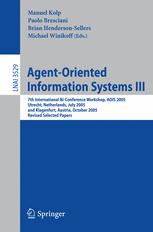

Most ebook files are in PDF format, so you can easily read them using various software such as Foxit Reader or directly on the Google Chrome browser.
Some ebook files are released by publishers in other formats such as .awz, .mobi, .epub, .fb2, etc. You may need to install specific software to read these formats on mobile/PC, such as Calibre.
Please read the tutorial at this link: https://ebookbell.com/faq
We offer FREE conversion to the popular formats you request; however, this may take some time. Therefore, right after payment, please email us, and we will try to provide the service as quickly as possible.
For some exceptional file formats or broken links (if any), please refrain from opening any disputes. Instead, email us first, and we will try to assist within a maximum of 6 hours.
EbookBell Team

4.0
76 reviewsInformation systems underpin today’s business and entertainment. The means by which these information systems have been developed has changed over the years. Although the current paradigm is to use object-oriented concepts, a new set of concepts, focussed on agent technology, is starting to be evaluated. Agents offer higher level abstractions (than objects) for the conceptualization, design and implementation of information systems. Agents have autonomy, can reason and can coordinate within societies of agents. The AOIS series of workshops explores the potential for facilitating the increased usage of agent technology in the creation of information systems in the widest sense. In 2005, two AOIS workshops were held internationally. The first was affiliated with the AAMAS 2005 meeting in July in Utrecht in The Netherlands and chaired by Henderson-Sellers and Winikoff and the second with ER 2005 in November in Klagenfurt in Austria and chaired by Kolp and Bresciani. The best papers from these meetings were identified and authors invited to revise and possibly extend their papers in the light of reviewers’ comments and feedback at the workshop. We have grouped these papers loosely under four headings: Agent behavior, communications and reasoning; Methodologies and ontologies; Agent-oriented software engineering; and Applications. These categories fairly represent the breadth of current AOIS research as well as encompassing the papers presented at the two AOIS workshops. We trust you will find the content of these selected and revised papers to be of interest and utility.